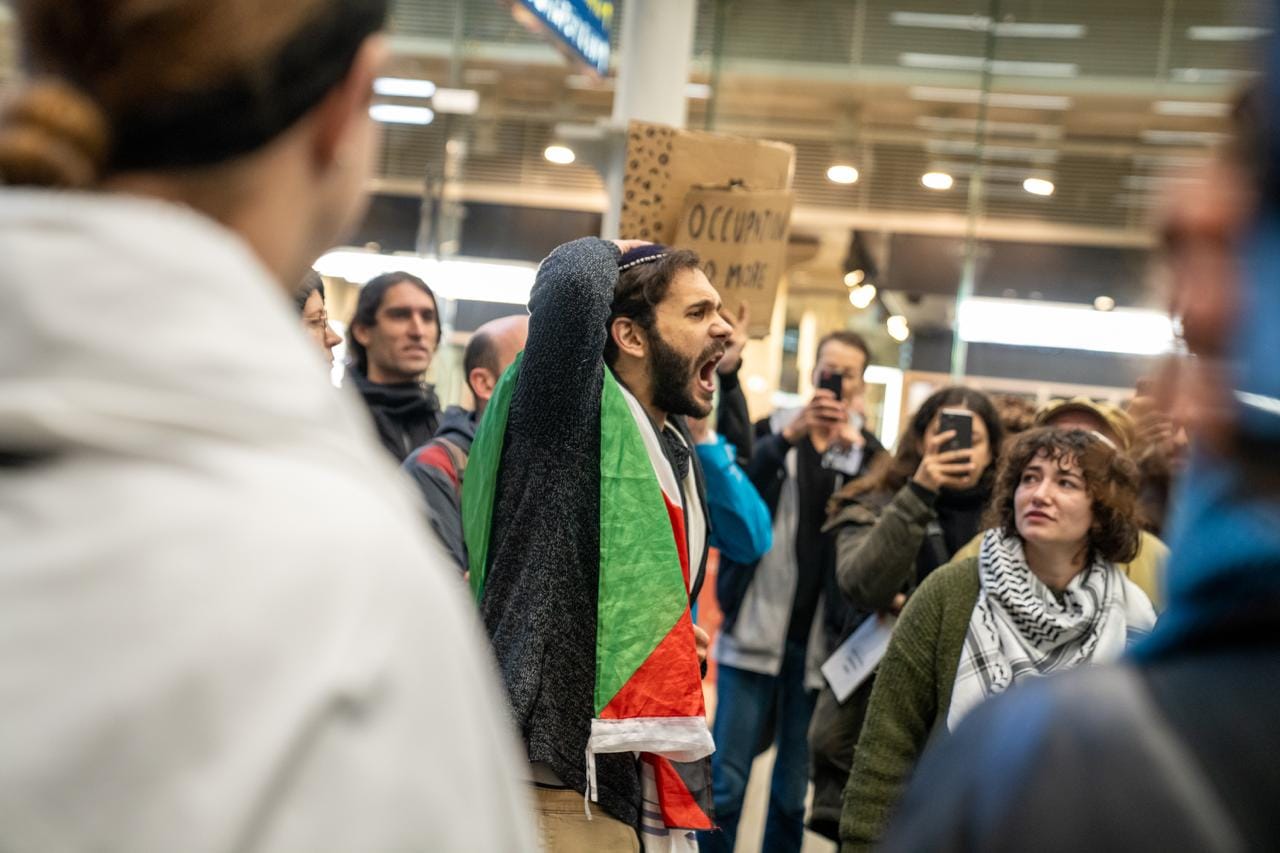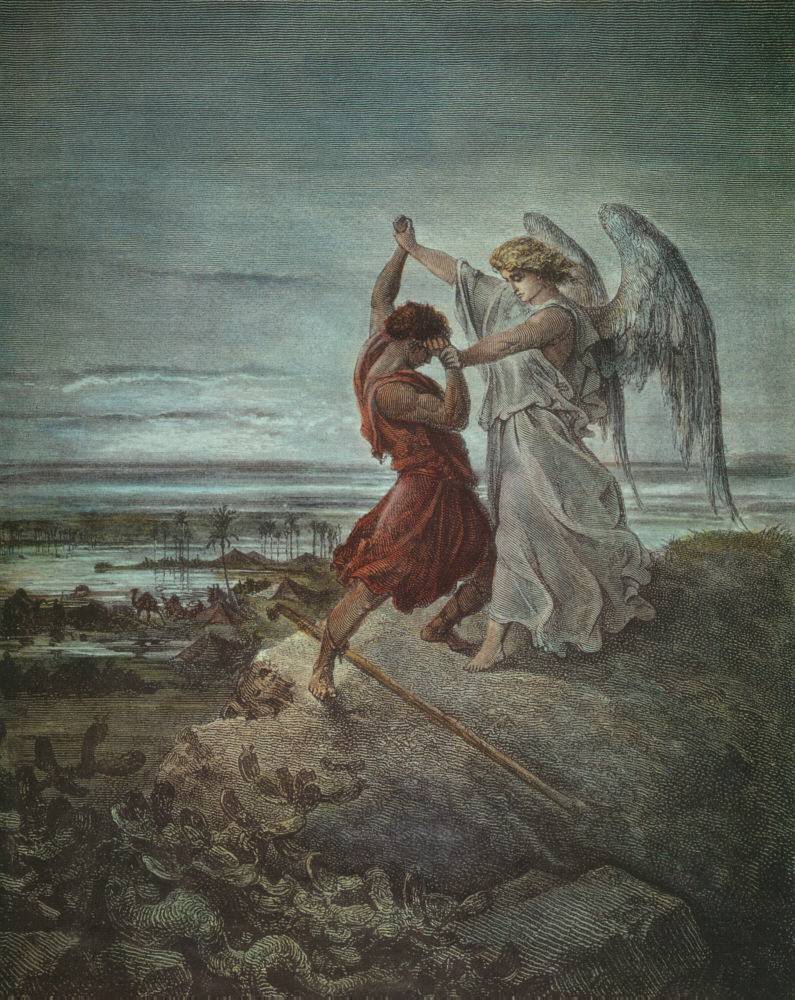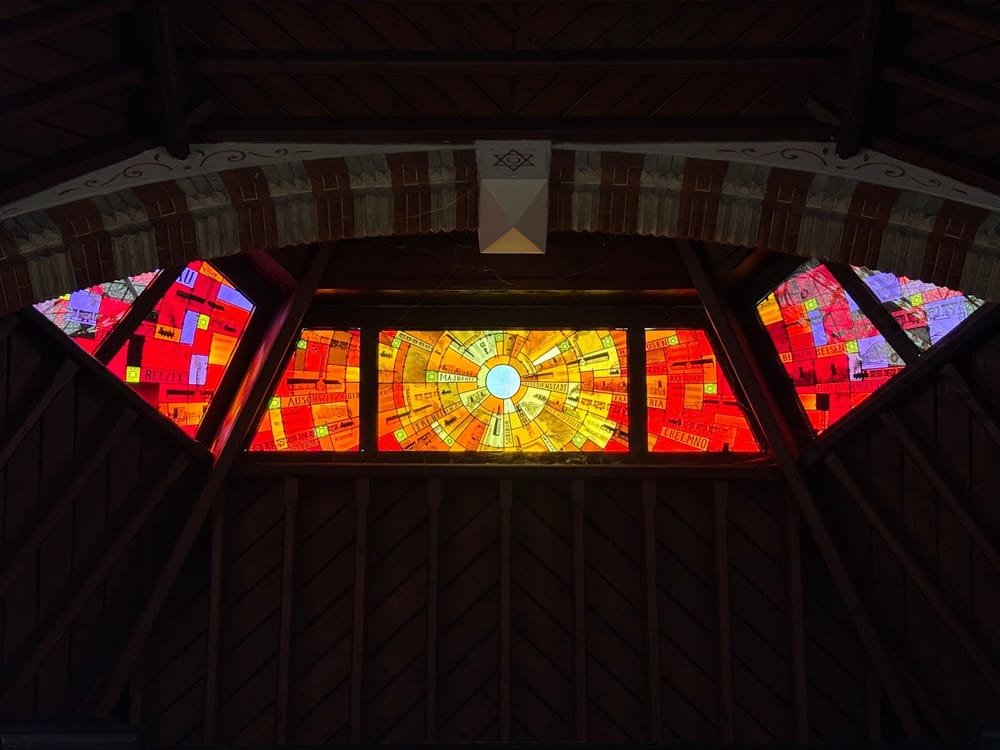Sometimes we win
The Exodus story teaches us that we must never lose sight of our ability to create a better world, no matter how impossible that may seem.

Thousands of years ago, a mob left slavery, and we haven't shut up about it since. Why do we tell the same story every year?
Because if we didn't, we might believe that slavery was inevitable. We might think that, every time we found ourselves in an oppressive system, that was the way things had always been, and the way they always had to be. We would be trapped in a mindset of defeat.
But sometimes we win.
Once, millennia ago, enslaved people were able to bring the world's greatest empire to its knees. With an outstretched hand and awe-inspiring deeds, they showed that their God of justice was stronger than the might of armies. And now we will never forget it.
Since 7 October, I have spent so many nights awake. I have stayed up crying, unable to sleep. Even when I do sleep, the war haunts my dreams. I cannot expunge my soul of thinking about starvation in Gaza, land grabs in the West Bank, all those held hostage and in administrative detention, and the concerted attacks on anyone who dares speak up.
I can't get the bombs out of my head. Bombs and snipers and shrapnel and unfathomable death, now by the tens of thousands.
I have lost sleep to anger, as Jewish communities in Britain become war propaganda factories. I continue to feel the weight of complicity and impotence. Despite so many calls for ceasefire and persistent efforts to stop the unfolding massacres, it has all felt impossible. Often, I cannot see a way it could become anything but worse.
One night, lying awake, I sobbed to my partner: “This is just what being on the left is. We lose, over and over and over again.” He lay in silence for a moment, then said: “Sometimes we win. Otherwise we wouldn’t be together.”
He was right. We are gay men. We both remember how recently two men being together openly, sharing a home and having public-facing roles, was inconcievable. Now we can even get married under a chuppah and look towards having a family.
Somebody won that for us – a movement, sometime before our time – so that we could now enjoy it. How many setbacks and defeats must that movement have gone through before victory? How often must the people who fought for those freedoms have had to endure their own sleepless nights and their own feelings of going crazy, only to suddenly find they had achieved their goals?
It is not the same, of course. It feels wrong to draw the comparison, in safety and privilege, while bombs fall and children starve. Yet, it is so much worse to treat suffering as competitive, and every struggle as an isolated one. Such thinking keeps us feeling siloed and defeated.
Throughout Jewish history, we have been able to draw on the Pesach story to talk about freedom in our own times. Seders have been used to celebrate the Emancipation Proclamation, the Russian Revolution and the Warsaw Ghetto Uprising. Haggadot have been issued to draw connections with women's liberation, racial justice struggles and disability movements. Pesach is our spiritual guide to thinking through freedom.
Pesach comes, each year, to remind us that we are never fully defeated. It tells the story of one time, thousands of years ago, when we won. And, through the telling of that one victory, we are reminded that we can win again. Pesach tells us of the coming of a time when we will see the final success: that, some day, all people, everywhere, will be completely free.
At the Seder, the commandment of Pesach is to tell aloud the story of Exodus from Egypt as if you yourself lived through it. Even if you are completely alone and have nobody to tell, you are supposed to recount the events out loud, into the air, reminding yourself how you did it. The point is surely to remind ourselves that even in the most impossible circumstances, even when we are completely alone, we still know that we can win.
Pesach is described in rabbinic literature as the “season of our freedom.” According to the 19th-century Belarusian rabbi, Aaron Shmuel Tamares, the entire Exodus narrative, and all the plagues that came with it, only served to show how much God despises “the domination of one person by another.” The Exodus was, for Tamares, an anarchist action against states, armies and material wealth. It set the scene for all Judaism that would follow: a sacred commitment never to subjugate or be subjugated.
Pesach calls to us, saying that we are justified in our demands against inequality, oppression and war. The Exodus proves that God supports our vision for a liberated world. And it tells us that it can be achieved.
When we read the story in the Torah, Moses first kills an enslaver, then returns to liberate the people. But that is not the whole story: an entire 40 years passes between Moses' propaganda of the deed and the successful emancipation of the Israelites. During those 40 years, when Moses was away in political exile, do we imagine the enslaved Israelites just sat around twiddling their thumbs? They spread ideas; they told each other stories; they prepared themselves for revolution.
Then suddenly, after 40 years of waiting, they achieved victory in a matter of weeks.
Again, once they had crossed the Sea of Reeds, the Israelites spent another 40 years wandering before they reached the Promised Land. During that time, they bickered, fought each other, and felt like giving up hope. They nearly did.
Then, just as all seemed lost, they crossed over the River Jordan.
We, too, may be in our wilderness years. We never know when they might end. But when they do, it may feel as momentous as splitting the sea, and many millions of people might find their freedom.
So we cannot stop hoping. We must continue to organise for a world better than this one. We must never give up.
It is undoubtedly true that much of being on the left is about losing. As long as any of us live, we will have to keep going back to advocating for the same things again and again. We are up against an entire system, whose weapons and ideological apparatus are already directed against us.
The system will want war, and we will make the case for peace. The system will demand flag-waving nationalism, and we will insist on common humanity. The system will starve people, take away their homes, and saddle the whole world with debt, and we will always call for a world where all things are held in common. The system will try to trap people into ever-smaller boxes, and we will never stop proclaiming freedom.
And sometimes, just sometimes, we will win. And, when we win one victory, thousands more follow. The sea of despair will part and the possibilities will come racing through. No Pharaoh nor legion will be able to stop them.
And one day, we will secure the final victory, and everyone, everywhere, will finally be free. May it come speedily and in our days.
Chag sameach.▼
Lev Taylor is a congregational rabbi in London. He is Rosh Yeshiva of the Queer Yeshiva.
Author

Lev Taylor is rabbi of Kingston Liberal Synagogue. He co-founded the Queer Yeshiva and is active in UK Friends of Rabbis for Human Rights.
Sign up for The Pickle and New, From Vashti.
Stay up to date with Vashti.



